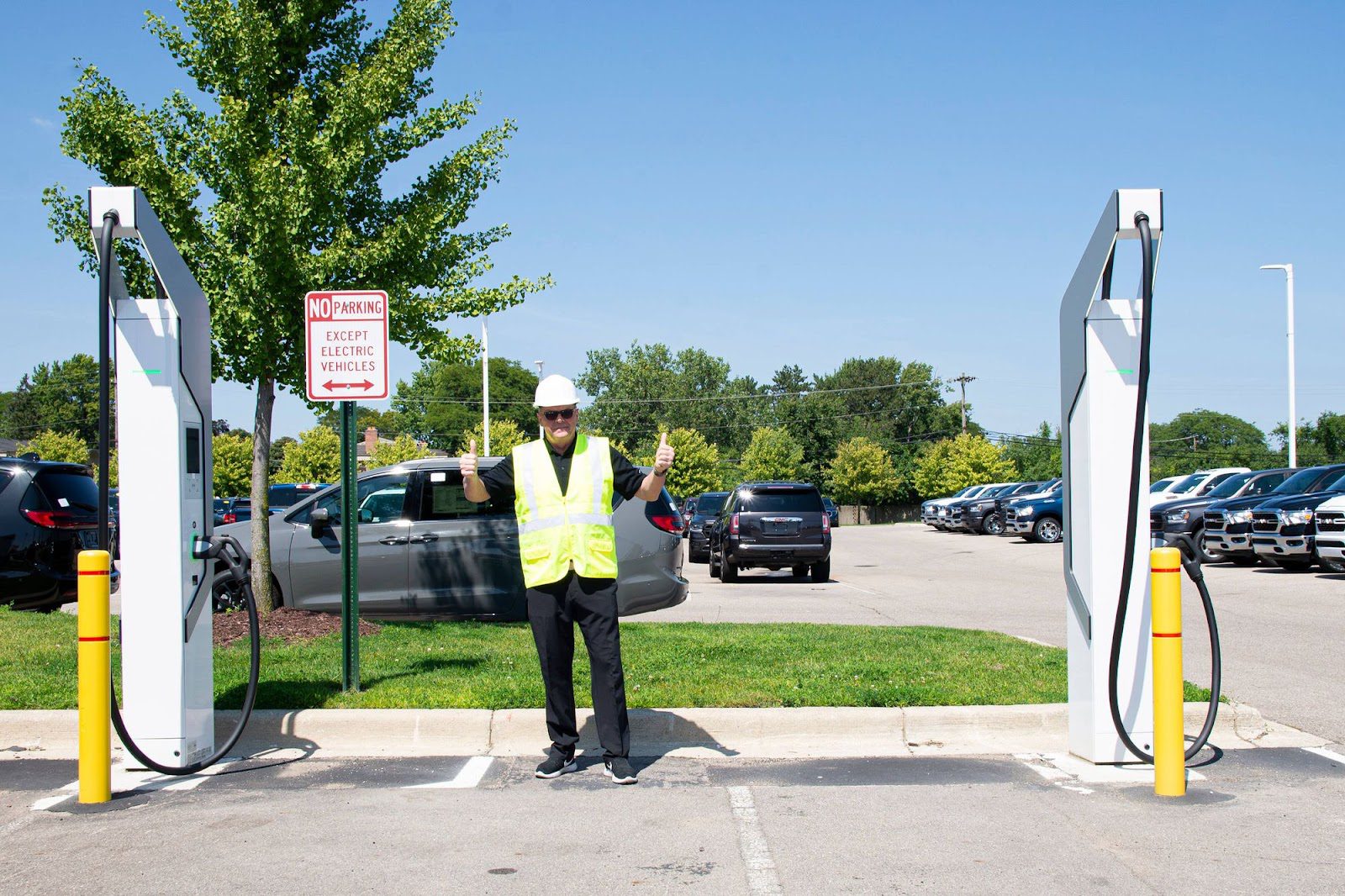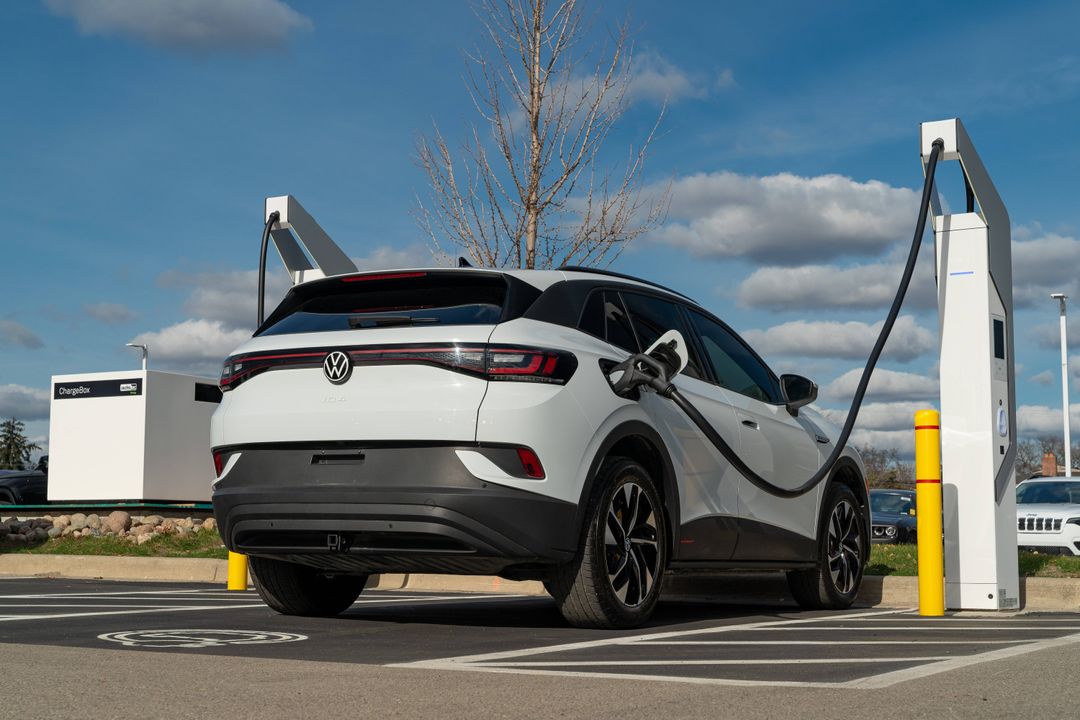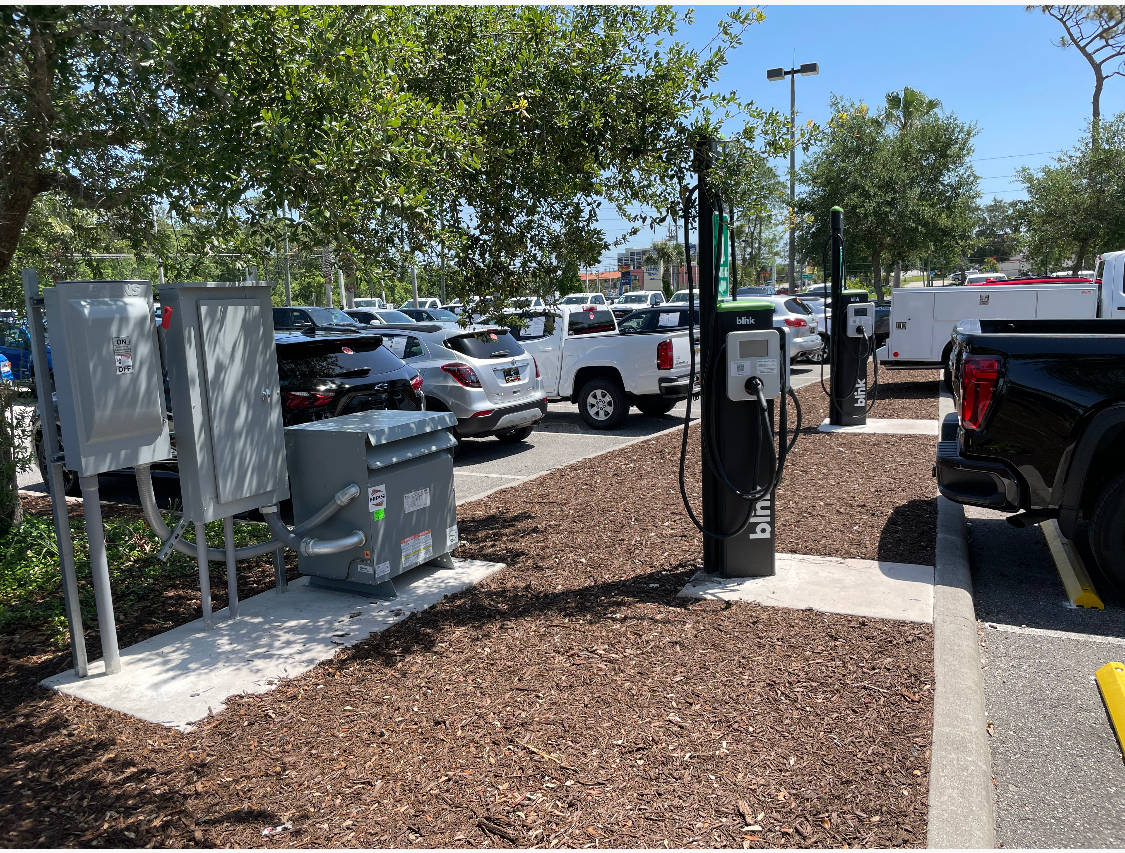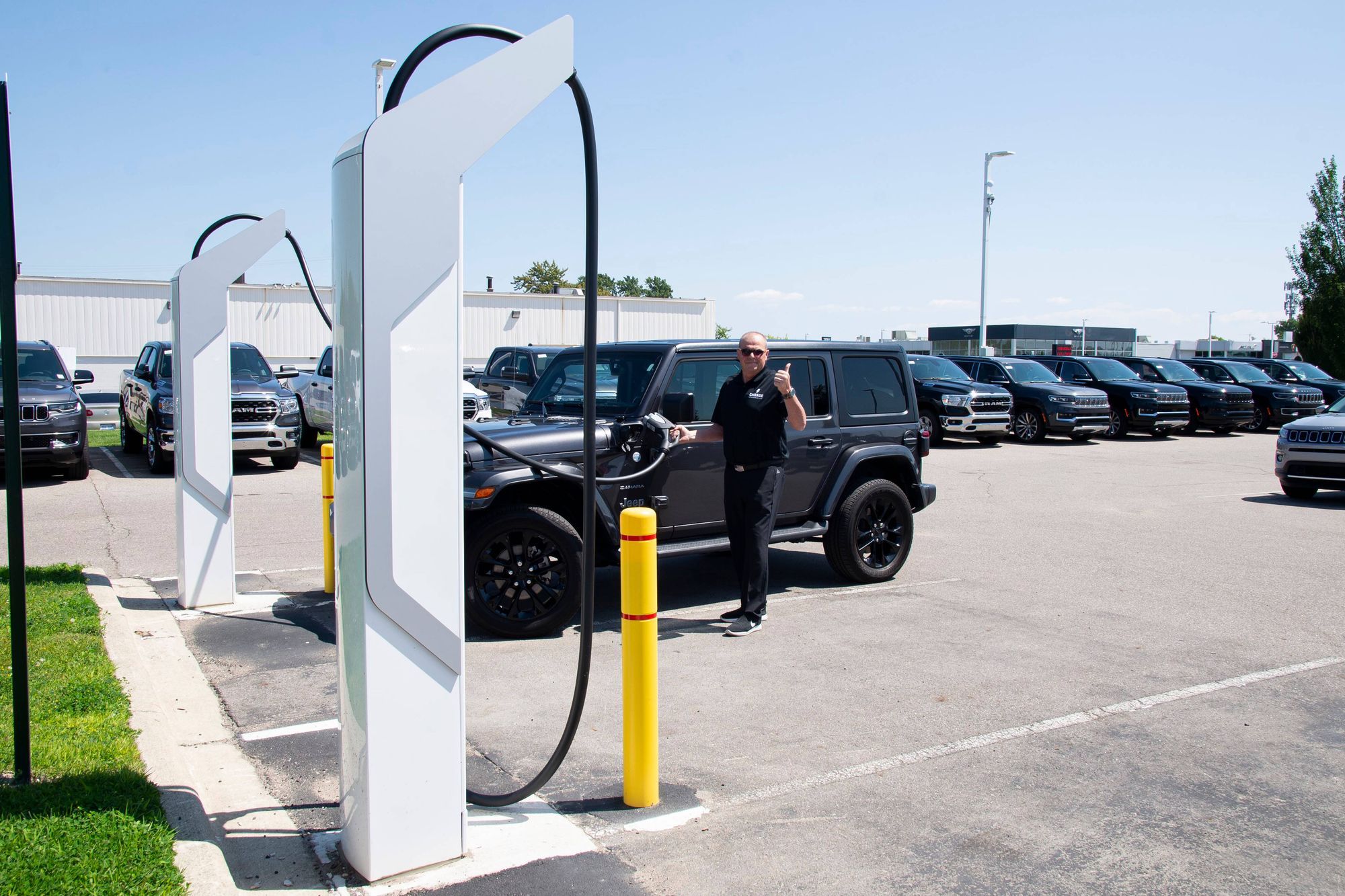Widespread adoption of electric vehicles (EVs) in the United States won’t happen until more EV charging infrastructure is in place — and there’s a lot of work to do in that regard. The U.S. Department of Energy’s National Renewable Energy Laboratory (NREL) has published data showing that to support a “mid-adoption scenario” of 33 million EVs on the road by 2030, the nation will need 28 million ports.
According to NREL, the country’s charging infrastructure will need several upgrades:
- Publicly accessible fast charging ports: 182,000 are needed to enable long-distance travel and ride-hailing electrification and support those lacking access to residential charging.
- Level 2 charging ports: 1 million are needed at publicly accessible locations, including high-density neighborhoods, office buildings, and retail outlets.
- Level 1 and Level 2 charging ports: 26 million are needed at privately accessible locations, including single-family homes, multifamily properties, and workplaces.
Among the companies on the front lines of this work is New York-based Charge Enterprises, which provides electrical, broadband, and EV infrastructure services. Charge Enterprises is actually the parent company of a group of smaller firms, one of which is Charge Infrastructure. It handles much of the work on EV charging design, engineering, installation, and software.

Photo Courtesy Charges Enterprises
The six other companies under the corporate umbrella address various markets, ranging from wireless 5G infrastructure and remote system monitoring to wireless data transmissions, electrical infrastructure services, and sustainable solutions for electromobility and energy.
Charge Enterprises has been a publicly traded company for more than a decade, though it spent most of that time as an over-the-counter stock under various names.
It was uplisted to the Nasdaq in April 2022 under a new corporate name and the ticker symbol CRGE.
According to Andrew Fox, the company’s founder and former CEO, one of the reasons Charge Enterprises went public was to offer stock options to workers installing EV infrastructure nationwide.
“It’s a way to incentivize people to pursue a career in this field and to reward those who are on the front lines of this important work,” Fox wrote in an April column for “Fortune.” “I encourage other companies to find creative ways to compensate their workers and promote the pursuit of a sustainable future for generations to come. Ultimately, this will have to be a collective effort.”

Photo Courtesy Charges Enterprises
Fox resigned as CEO in August as part of a company overhaul partly designed to boost Charge Enterprises’ stock price, which fell below $1 a share in 2023. Fox stayed on as a company board member and touted the company’s “tremendous opportunities” in a press release announcing the changes.
Many of those opportunities involve building out the nation’s EV charging infrastructure, which Fox says involves regulatory hurdles and “logistical nightmares” in retrofitting older buildings.
“In order to achieve mass adoption of EVs, charging stations will need to be situated at auto dealers, public spaces such as parking garages, shopping centers, office buildings, and anywhere else that would make charging your EV as easy as filling up your tank,” Fox wrote in the Fortune column.

Photo Courtesy Charges Enterprises
He also noted that the current administration “announced $2.5 billion in grants for EV chargers, which will fund the installation of 500,000 new charging stations across the country by 2030.”
In addition, state and local governments are providing funding and incentives for businesses to install stations and streamline the permitting process to make it easier and faster to install new stations.
“Building a seamless public charging network for EVs has the potential to transform not only the automobile industry but also the transportation industry as a whole,” Fox wrote. “As more people adopt electric vehicles, it’s crucial that we have a robust charging infrastructure in place to support this transition. But creating this infrastructure is not only about sustainability — but it’s also about creating new, rewarding job opportunities … .”





